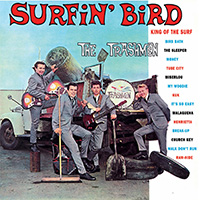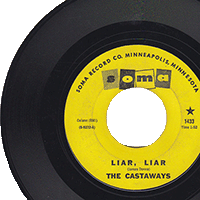New Riverside Cafe
Minneapolis
The New Riverside Cafe was Co-op that had two locations on the West Bank. The papers of the organization are held by the Minnesota Historical Society. The following is a historical note written by the Historical Society based on the papers:
1900 RIVERSIDE
The New Riverside Cafe was originally conceived in 1970 by an Episcopal priest, Father William Teska. Teska saw that the future development of the West Bank neighborhood of Minneapolis was dominated by a small group of powerful corporate and government interests leaving little, if any, community control in planning the area’s future. Teska decided that a coffeehouse would act as place where a sense of community and power could grow and serve as an organizational base in the fight to save the neighborhood from urban renewal. In order to raise money for the cafe and provide the West Bank residents with a legal identity, Teska brought together a group of University of Minnesota chaplains and formed the West Bank Campus Ministry. The group raised $2,000 and borrowed another $1,000 as seed money for the coffeehouse.
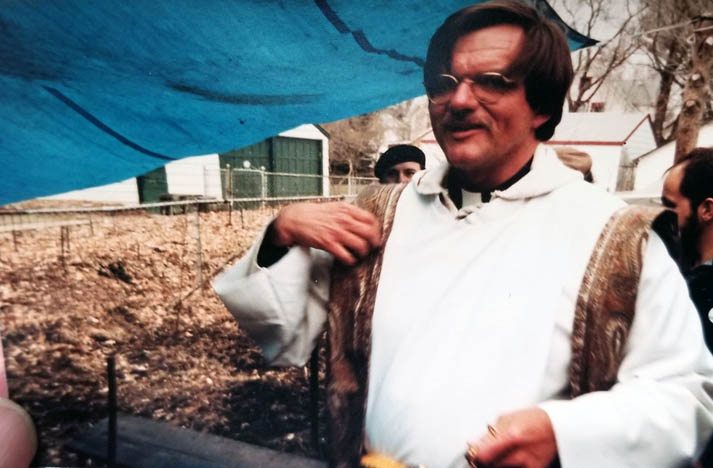
During the Summer of 1970, Teska and others secured a space for the coffeehouse on the corner of 19th and Riverside Avenues.
[This site had belonged to Mel Leslie, whose Coffeebreak Coffee House had been displaced by a Red Barn restaurant in 1965. In the spring of 1970 he was low on cash and there was a lot more to do, so Leslie sold all his equipment, furnishings, dishes, etc. to Teska and the Campus Ministries. — Carolyn Brown Zniewski]
Four people prepared the original location for opening. Early on, Teska recommended that the cafe hire a bookkeeper and manager, but in the second month of operation, during its first workers meeting, the manager fired himself and recommended that a collective form of management be adopted in order to eliminate any hierarchical structure at the cafe. The cafe opened on September 13, 1970, serving only cold food due to its inability to meet the city’s health codes for hot food. At first the cafe’s menu, not being overly concerned with health food, included salami sandwiches, sugared pastries, and cheesecake. However, identifying itself as a place with revolutionary politics, the cafe soon began serving good tasting and wholesome bread, soups, and salads, in spite of the fact that they had to be prepared outside the restaurant and smuggled in.
The cafe also provided an “open stage” all week long and amateurs wanting to perform were free to do so. However, on the weekends the best known local musicians would play to full houses. Later on, featured musicians played every night except Mondays, when the cafe was closed in order to hold collective meetings, and Tuesdays, which was reserved as Open Stage night. The early cafe workers were not really interested in being business people and the business struggled financially, remaining open primarily due to the will of its workers.
Musical entertainment featured folk, blues, and bluegrass.
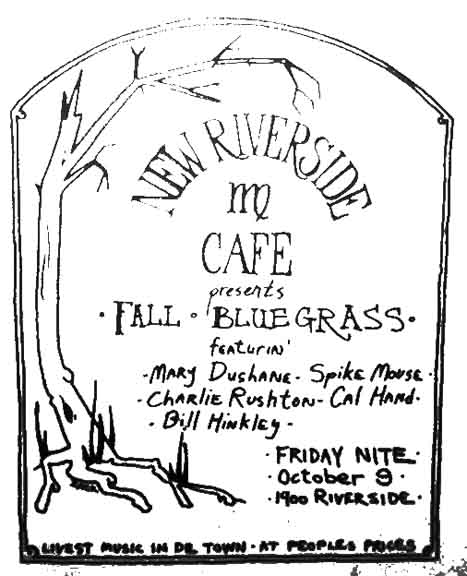
In 1971 Hundred Flowers reported that the building was owned by the U of M, which was going to demolish it for a parking garage. And indeed it was.
329 CEDAR
After extensive negotiations with the University, the cafe was relocated to the old Excuse Club bar at the corner of Cedar and Riverside Avenues.
Will Fehlow described the vibe of the old building.
Ancestor energy is strong in this article and picture. When we first moved in, the emanations from past lifetimes were still heavy in 329… I would get chills when working alone late at night with no hubbub to conceal the vibe — the veil between “now” & “then” seemed very thin at times in the building which had seen so much history & after the windows were first un-boarded & we new inhabitants moved in there was a certain feeling coming from just out of sight…
Back to the MHS Historical Note:
Late in 1971, with a great deal of help from the neighborhood community, the cafe opened in its new location. It was soon able to meet the health codes and began to serve a more varied menu of hot foods, becoming the first full service vegetarian restaurant in Minneapolis. By January 1972 the cafe had its own legal identity and severed its ties with the West Bank Campus Ministry.
The collective rented its first collective house in January 1971, and by the summer of 1972 almost all the members were living in one of three West Bank houses. It was decided at this time that wages would be abolished and the cafe would pay all living expenses for the members including rent, food, and personal expenses. The communal living arrangement worked so well that late in the summer of 1972 the collective decided to run the cafe on the same basis. Prices were eliminated and customers were encouraged to “Eat what you need, pay what you can afford.”
In the summer of 1973, faced with a decline in business, the 30 communal members were forced to find new sources of income. The collective, then known as the Dire Wolf Gang, formed an auto repair business, Ace Truck Parts; a moving company, Macho Movers; and a vegetarian catering service, Funny Foods. The businesses all operated out of the cafe and were staffed by collective members. This period of communalism lasted three years before the cafe reverted to more traditional business practices in 1975. The collective structure remained intact, however, and would remain the cafe’s method of management for the next 22 years.
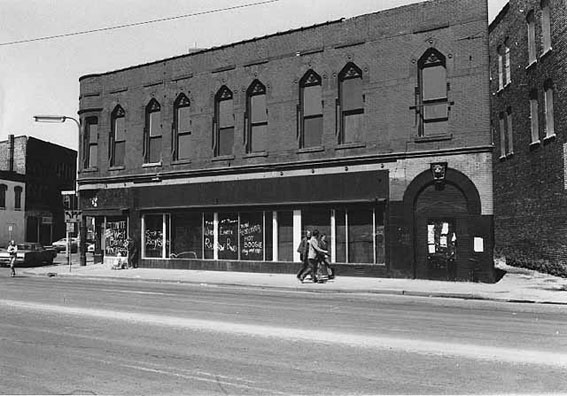
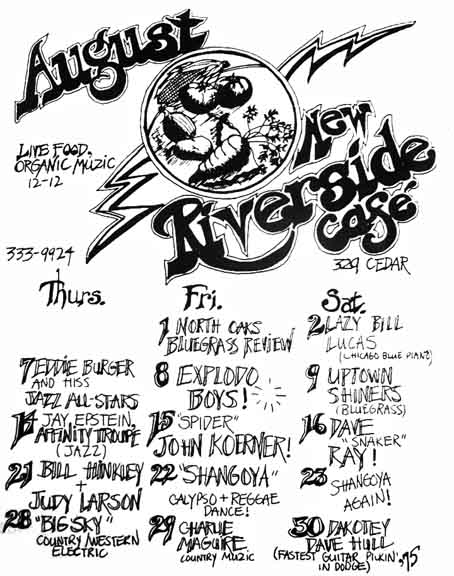
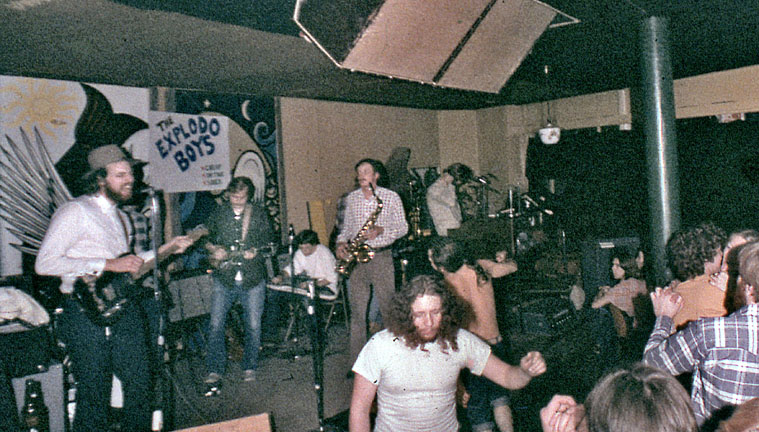
During 1975 and 1976, the collective members occupied the cafe building in order to block its planned demolition by Cedar Riverside Associates as part of the Cedar-Riverside Apartments development. In November 1977, due to its participation in a rent strike with over 150 members of the West Bank Tenants Union, the cafe received an eviction notice from Cedar-Riverside Associates, at the time the largest private landlord in the state. The collective threatened to occupy the cafe if the eviction was carried out. The Cafe’s case came to trial on February 8, 1978, and the jury returned on February 13, 1978, with a verdict against the Cafe. However, rather than accept the Cafe’s back rent and allow it to stay, the landlord appealed the case to the Minnesota Supreme Court. Cedar-Riverside Associates won the appeal on June 30, 1978, but the following day, July 1, 1978, another court action resulted in the appointment of a new landlord and Cedar Riverside Associates’ loss of the legal right to evict the Cafe.
During the 1980s and 1990s the Cafe’s political activity subsided and the collective concentrated its efforts towards maintaining the Cafe’s economic viability. In 1984 the Cafe bought the building from the city of Minneapolis and, due to major structural problems, implemented a $390,000 building renovation. Due to financial problems the New Riverside Cafe closed onMay 10, 1997, marking the event with a public wake held on May 23, 1997. During its 27-year history as part of the West Bank community, more than 300 collective members worked at the cafe, 1,040 musicians performed there, and approximately 10,000 customers were served.
